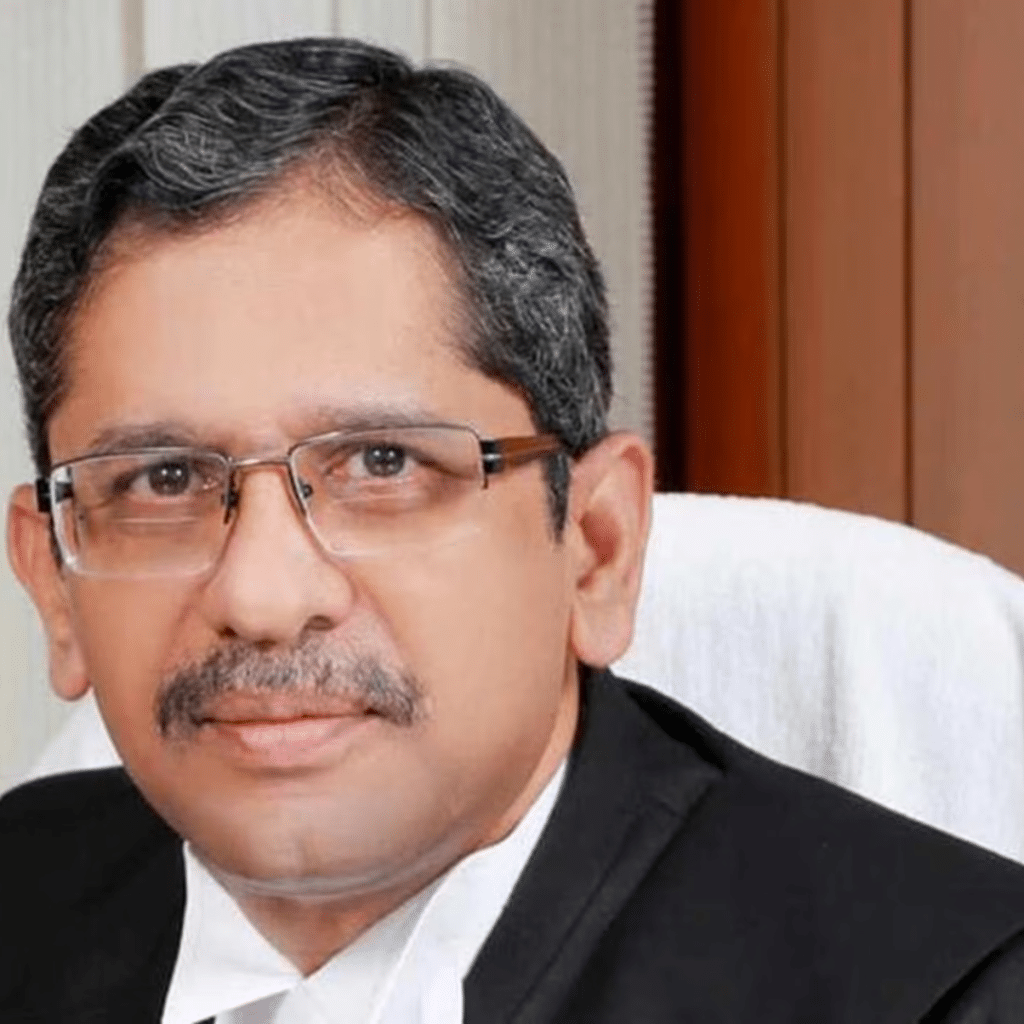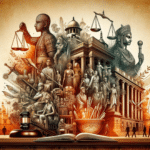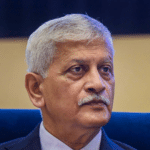
All about the former Chief Justice of India, Justice Nuthalapati Venkata Ramana
Table of Contents
All about the former Chief Justice of India, Justice Nuthalapati Venkata Ramana
The “former Chief Justice of India” is Nuthalapati Venkata Ramana born on 27 August 1957 and retired from the position of Chief Justice of India on 27 August 2022 as he turned 65 years old.
He has served as the acting chief justice of the Andhra Pradesh High Court, chief justice of the Delhi High Court, and a judge on the Supreme Court of India in the past.
Ramana has also served as the Andhra Pradesh Judicial Academy‘s president.
He was born on August 27, 1957, in Ponnavaram village, Krishna district, Andhra Pradesh, to a Telugu-speaking farming family
Former CJI N.V. Ramana worked as a journalist for the Eenadu newspaper from 1979 to 1980. He registered on February 10th, 1983 to become an advocate. He handled civil, criminal, labor service,
and election cases at the Supreme Court of India, the Central and Andhra Pradesh Administrative Tribunals, and the Andhra Pradesh High Court. He also dealt with a variety of constitutional issues, such as Indian federal river disputes.
During this time, Ramana served as an attorney for numerous government agencies, including the Central Government and the Indian Railways, both of which he represented in the Central Administrative Tribunal in Hyderabad.
He has also served as the state of Andhra Pradesh’s Additional Advocate General.
On June 27, 2000, Ramana was appointed a permanent judge of the Andhra Pradesh High Court. He was named Chief Justice of the Delhi High Court on September 2, 2013, then on February 17, 2014,
he was appointed as a judge to the Supreme Court of India. The Supreme Court’s then-Chief Justice SA Bobde proposed him for the position of Chief Justice in March 2021.
Ramana was chosen by President Ram Nath Kovind to be the 48th Chief Justice on April 6, 2021. He took the oath of office at Rashtrapati Bhavan on April 24, 2021
Now, Justice U.U. Lalit will succeed him, to read about him click here.
The chosen president Droupadi Murmu is sworn into office by Chief Justice N. V. Ramana.
During his time as Chief Justice of India, the Supreme Court and high courts received more judicial appointments, which reduced vacancies to their lowest level since 2016. He granted the press exclusive internet access to the courtroom.
In other situations, he also made important court interventions. Sedition law was suspended, Ashish Mishra’s Lakhimpur Kheri violence case bail was revoked, and a panel was established to look into the Pegasus case,
in which the bench stated that the Union government did not cooperate in the investigation, [and] his ruling that a woman’s domestic work is equivalent to that of an office-going man. In his capacity as Chief Justice, he assembled a panel of three judges, presided over by him, to investigate a petition challenging a Supreme Court decision from 2013, which found that political parties’ distribution of private goods like televisions and laptops was not a corrupt practice fell under the directive principles, despite the petitioners’ claims that it was “irrational freebies.”
He received criticism for refusing to request a court review in any of the situations that call for a constitutional bench.
When he retired, 53 of these cases were still unresolved. Important lawsuits that are still ongoing include those challenging the Citizenship (Amendment) Act of 2019, the Electoral Bonds program,
the repeal of Article 370 in Jammu and Kashmir, and the hijab ban in Karnataka.
He spoke about the development of the Indian police system from the British era during a lecture on “Democracy: Role and Responsibilities of Investigative Agencies.”
The Central Bureau of Investigation (CBI) has “come under significant public scrutiny,” he underlined as time went on. Ramana claims that the CBI has frequently created “doubt on its legitimacy” by “actions and inactions.”
In his words, “reclaiming social legitimacy and public trust” was urgently needed, and the first step in doing so “is to break nexus with political and executive.”
He stated: “Police personnel frequently approach us and claim they are being harassed as a result of the change in power,
and suspicions of corruption and other wrongdoing have damaged their reputation. The political leaders will evolve throughout time. You are permanent,”
“The establishment of an independent umbrella organization is urgently needed to bring together diverse agencies like the CBI, SFIO, ED, etc.
This organization must be established by a statute that outlines all of its responsibilities and authority.
A measure of this nature would also result in much-needed legislative supervision, “.
He recommended that the independent and impartial authority, as envisioned, should “be elected by a committee similar to the one that chooses the CBI Director.
Deputies with expertise in several fields may support the organization’s leader “.
Speaking as the Chief Justice at the All India District Legal Services Authorities meeting,
he emphasized that only a small portion of the populace could afford to seek legal assistance while the majority suffered in silence and thought that access to justice was a means of achieving social emancipation.
He emphasized the necessity for the district judiciary to be strengthened and exhorted the legal community and the judiciary to actively defend the rights of inmates who are awaiting trial.
Speaking at a Rajasthan Assembly event, he said that the opposition’s space was shrinking and that a lack of respect for one another and growing enmity between the government and opposition were not indicative of a strong democracy.
According to him, India is a parliamentary democracy,
with the fundamental principle of democracy being that the minority should not be suppressed by the majority. In order to promote parliamentary democracy,
he thought the opposition should be strengthened, but he also thought that as the administration passed bills without careful consideration or review, the opposition’s space was shrinking.
In a letter to the then Chief Justice S. A. Bobde in October 2020, Andhra Pradesh Chief Minister Y. S. Jagan Mohan Reddy claimed that Ramana and his relatives had engaged in corruption in connection with the purchase of land in the recently founded city of Amravati and that they were attempting to topple the Andhra Pradesh Government by allegedly influencing hearings and decisions in the Andhra Pradesh High Court.
Reddy requested that the Chief Justice look into the situation and take the proper action. The letter sparked both support for an investigation and resistance from organizations representing judges and attorneys after it was widely reported.
The All India Lawyers’ Union demanded a probe, with sanctions to be enforced on Reddy if the charges were found to be incorrect, and the Delhi High Court Bar Association denounced the letter.
Following the publication of the letter, Ramana claimed that judges had turned into “easy targets for criticism” and “victims of juicy gossip and defamatory social media posts” when speaking at a book release ceremony for former Supreme Court justice R. Banumathi.
Prior to this, the Andhra Pradesh High Court had banned the media from publishing the filing of a case of corruption involving land sales in Amravati against a number of people,
including Ramana’s daughters, in September 2020. After hearing from the advocates on the merits, the Supreme Court eventually lifted the gag order.
In the meanwhile, the investigation was put on hold until November 2020.
In response to a request from BJP leader Aswini Kumar Upadhyay, the Attorney General of India, K. K. Venugopal, declined to authorize the filing of a contempt of court case against Y. S. Jagan Mohan Reddy in November 2020.
As the Andhra Pradesh High Court was currently hearing several cases involving allegations of corruption against Y. S. Jagan Mohan Reddy’s government,
he noted that Reddy’s remarks were “contumacious” and that the timing of his letter was “suspect,” but he would not be allowing a contempt case against Reddy to proceed at the Supreme Court for his remarks about Ramana.
A second request to start contempt proceedings was similarly rejected by the Attorney General, who claimed that the Court may start proceedings on its own.
In reaction to the accusations made against Ramana in his letter, three petitions demanding the foe dismissal of Y. S. Jagan Mohan Reddy as Chief Minister of Andhra Pradesh were submitted to the Supreme Court in November 2020.
Judge U.U. Lalit of the Supreme Court disqualified himself from hearing these petitions.
The claims against Ramana were judged to be “meritless” in accordance with an internal process for examining complaints, the Supreme Court stated in a statement it released on March 24, 2021.
This resulted in the case being ended. The Court added that because the report was “strictly secret,” they would not be making it public.
Also Read, https://en.wikipedia.org/wiki/N._V._Ramana





